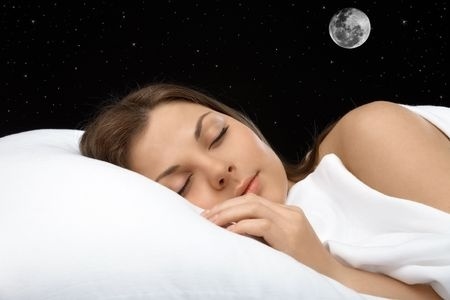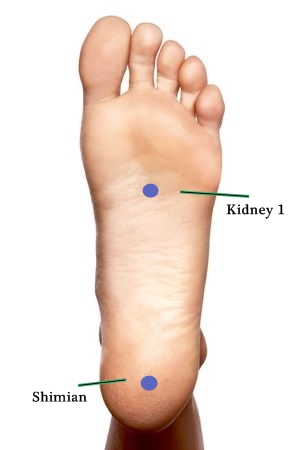“When a person lies down and cannot sleep, the Yin organs are injured, the Essence has no residence and is not quiet, and the person cannot sleep.” – Simple Question (Su Wen), Chapter 46
 How many nights do you toss and turn, finding it hard to fall asleep? Or perhaps you fall asleep quickly, only to wake up early and can’t fall back asleep? Do you routinely find yourself sluggish in the morning, wishing you could get just one more hour of sleep?
How many nights do you toss and turn, finding it hard to fall asleep? Or perhaps you fall asleep quickly, only to wake up early and can’t fall back asleep? Do you routinely find yourself sluggish in the morning, wishing you could get just one more hour of sleep?
Insomnia, as defined by the Mayo Clinic, is “a persistent disorder that can make it hard to fall asleep, hard to stay asleep or both, despite the opportunity for adequate sleep.” Long term insomnia can have serious health consequences: irritability, obesity, depression/anxiety, substance abuse, increased risk of heart disease, high blood pressure, and diabetes.* About 1 in 4 Americans suffer from some form of insomnia.†
As with everything in Chinese Medicine, sleep is a result of the balance and interplay of yin and yang in the body. When a person is awake, yang qi has ascended; the mind is awake and the senses are alert. This naturally corresponds to energy around us. Yang qi is abundant during the day, so we should naturally be awake during that time. As day progresses into night and we move into the yin time of day, yang qi descends nurtured by yin and we sleep, and the cycle starts over again.‡ Or put more succinctly:
“When Yang Qi is at its limit and Yin Qi is abundant, one’s eyes are closed. When Yin Qi is at its limit and Yang Qi is abundant, one is awake” Spiritual Pivot (Lingshu)
When this interplay of yin and yang gets out of balance, we can start to experience insomnia. Acupuncture and Chinese herbal medicine can help a body get back into balance and therefore improve sleep. The root problems for insomnia can be broken down into two major categories: excess or deficiency. Through careful questioning and tongue and pulse diagnoses, an imbalance can be determined, followed by individualized treatment.
In addition to acupuncture and herbs, here are four simple lifestyle changes that can help a person get a better night’s sleep.
- Set up a sleep routine.
- Try to go to bed at the same time every night and try to rise at the same time every morning.
- Avoid electronics for at least 30 minutes before bedtime. The goal is to start to transition the body into a more natural relaxation state.
- c. Create an inviting and comfortable space for sleep. Keep the bedroom for sleep and sex only.
- Exercise – moving your Qi is always a good idea.
- It’s best to do vigorous exercise earlier in the day.
- Move “yin” type exercise closer to bed time. These would include gentle yoga, an after dinner walk, and light stretching.
- Diet
- Avoid stimulates. This includes caffeine, alcohol and nicotine. While alcohol may help a person to fall asleep initially, it can lead to restless sleep later in the evening. The effects of caffeine and nicotine can last for several hours and disrupt sleep.
- Avoid large meals too close to bed time. This can boost your metabolism, making it harder for you to fall asleep. It can also bring on reflux symptoms making it uncomfortable to lay down.
- Stop the “monkey mind.” Many times a racing mind prevents us from sleeping, or wakes us up.
- Learn tools to help you manage your stress: e.g., meditation, yoga, breathing exercises and acupuncture.
- A simple foot massage helps to ground your mind. Target the heel and center of your foot to activate two acupuncture points that can help with sleep: Kidney 1 and Shimian.
To experience the benefits of acupuncture and Chinese herbal medicine, contact me for an appointment today.
* “Insomnia.” Definition. N.p., n.d. Web. 12 July 2014. http://www.mayoclinic.org/diseases-conditions/insomnia
† Pearson, Catherine. “Insomnia In The U.S. Is Still A Pressing Public Health Problem, Study Shows.” The Huffington Post. TheHuffingtonPost.com, 20 Jan. 2012. Web. 15 July 2014.
‡ Flaws, Bob. Curing Insomnia Naturally with Chinese Medicine. Colorado: Blue Poppy Press, 1997. Pp 29-30.

